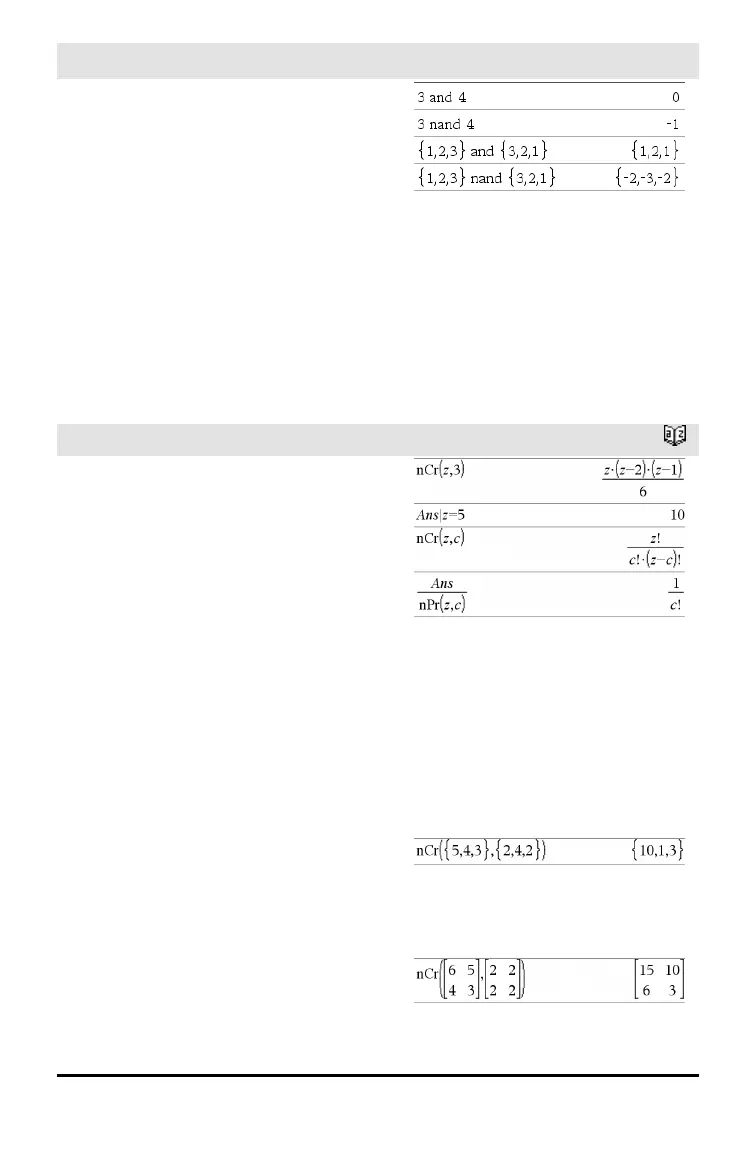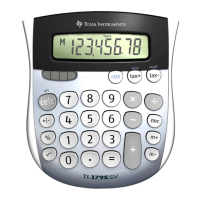118 Alphabetical Listing
nand
/= keys
Integer1 nand Integer2 ⇒ integer
Compares two real integers bit-by-bit using
a nand operation. Internally, both integers
are converted to signed, 64-bit binary
numbers. When corresponding bits are
compared, the result is 1 if both bits are 1;
otherwise, the result is 0. The returned
value represents the bit results, and is
displayed according to the Base mode.
You can enter the integers in any number
base. For a binary or hexadecimal entry, you
must use the 0b or 0h prefix, respectively.
Without a prefix, integers are treated as
decimal (base10).
nCr()
Catalog >
nCr(Expr1, Expr2) ⇒ expression
For integer Expr1 and Expr2 with Expr1 ≥
Expr2 ≥ 0, nCr() is the number of
combinations of Expr1 things taken Expr2
at a time. (This is also known as a binomial
coefficient.) Both arguments can be
integers or symbolic expressions.
nCr(Expr, 0) ⇒ 1
nCr(Expr, negInteger) ⇒ 0
nCr(Expr, posInteger) ⇒ Expr•(Expr−1) ...
(Expr−posInteger+1) / posInteger!
nCr(Expr, nonInteger) ⇒ expression! /
((Expr−nonInteger)!•nonInteger!)
nCr(List1, List2) ⇒ list
Returns a list of combinations based on the
corresponding element pairs in the two
lists. The arguments must be the same size
list.
nCr(Matrix1, Matrix2) ⇒ matrix

